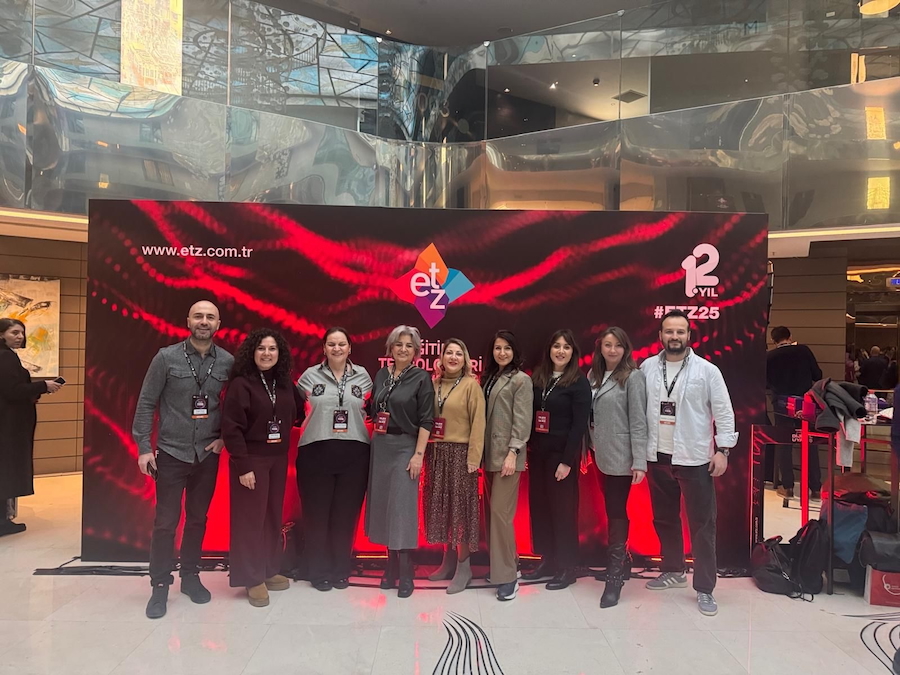Education Technology Summit 2025: Digital Awakening

Education Technology Summit 2025: Digital Awakening
By Celile Gürsu & İlkem Kayıcan Dipcin
Recently, we attended the fifth annual Education Technology Summit held in Istanbul in early March. The summit, themed “Digital Awakening,” brought together educators, innovators, and technology specialists focused on digital transformation in education. The program featured sessions from various speakers addressing AI integration, generational shifts in the workplace, and evolving pedagogical approaches. We participated in several sessions, each offering insights into current educational technology trends and practical applications.
A Teacher’s AI Journey into AI: Creating a Digital Assistant with Poe in 45 minutes!
Session led by Tuğrul Bayındırlı, Innovation Director at Doping Hafıza
The session introduced Poe, an AI chatbot platform developed by Quora that enables users to build customized AI assistants without requiring coding knowledge. Bayındırlı, assisted by a team of technical mentors, presented the platform’s capabilities for educational contexts.
Key features of Poe highlighted during the session included:
• Multiple AI Model Integration: Support for various engines including ChatGPT, Claude, and Gemini
• Accessible Bot Development: Interface designed for educators without technical backgrounds
• Multi-platform Functionality: Available across mobile and web interfaces
• Customizable Prompts and Behaviors: Options to tailor bots for specific educational purposes
The practical component of the session guided participants through the bot creation process:
1. Accessing the bot creation interface
2. Selecting from various bot types (Prompt-based, Image Generation, Role Play, Server-based)
3. Developing clear instruction sets for bot responses
Participants worked in four thematic groups to develop specialized educational assistants:
• Project Idea Assistant for generating student projects
• Digital Panel Design Assistant for visual project planning
• E-Newsletter Assistant for school communications
• Presentation Script Assistant for lesson preparation
The session demonstrated how well-constructed prompts could efficiently generate quality educational materials. With platforms like Poe, educators can produce content efficiently, create diverse materials, address varied learning needs, and adapt to educational innovations.
New Owners of Business: Leading Generation Z in the Workplace
Session led by Arda Ergez
This session examined how leadership approaches need to adapt to the characteristics and expectations of Generation Z (born 1997-2013) as they increasingly enter and influence professional environments.
Ergez presented several key observations about this generation:
• Professional Characteristics: Today’s young professionals exhibit notable stress tolerance, creativity, and values-driven approaches. Their priorities include authenticity, meaningful impact, and often perfectionist tendencies.
• Current Challenges: Employers face specific issues when working with Gen Z, including financial management difficulties (35% report inability to save), limited financial literacy, and social media’s impact on attention and mental health—characterized as a “dopamine crash” culture. The World Economic Forum data indicates a significant skills gap, with 63% of employers reporting difficulty finding appropriate talent.
• Leadership Expectations: Generation Z responds positively to leaders who demonstrate authentic modeling, flexible management approaches, substantial development opportunities, and contemporary workplace understanding.
• Effective Engagement Strategies: Connecting with this generation requires developing problem-solving abilities, communication skills, teamwork, and equitable recognition systems. Organizations seeking sustainability must provide competitive compensation, flexible work arrangements, and improved work-life integration.
The session emphasized that understanding Generation Z is a necessity for organizational success. Institutions willing to adapt stand to benefit from both emerging talent and transformative potential.
Brain Training in the Age of Artificial Intelligence
Session led by Dr. Kerem Dündar
Dr. Dündar’s session analyzed how generative AI is fundamentally altering educators’ roles. As AI capabilities expand, teachers must transition from primary information providers to facilitators of learning, skill development coaches, and designers of effective educational experiences.
The session addressed several critical considerations:
• Methods for developing students’ critical thinking and decision-making in AI-rich contexts
• Approaches for cultivating higher-order cognitive abilities including creativity and ethical reasoning
• Guidelines for promoting effective and discriminating AI tool usage
• The changing skills framework in contemporary technological environments
• The increasing relevance of data-informed and individualized educational approaches
Dr. Dündar presented a compelling argument for educators to embrace facilitative and coaching roles that prepare students for success in rapidly evolving technological landscapes.

